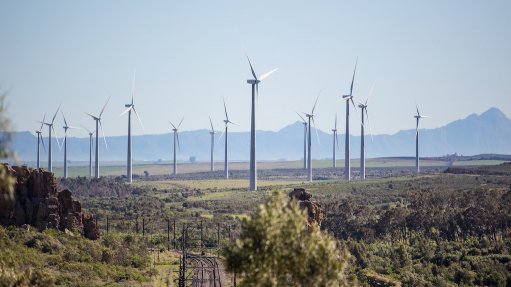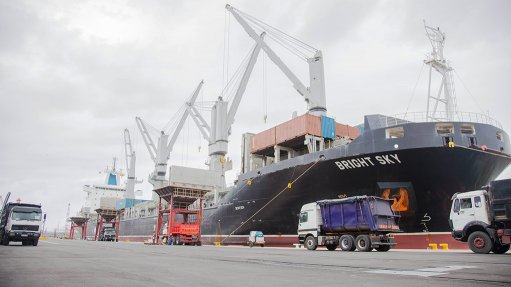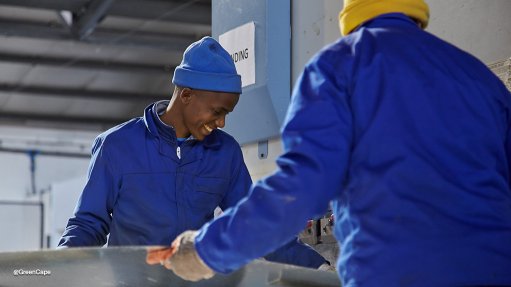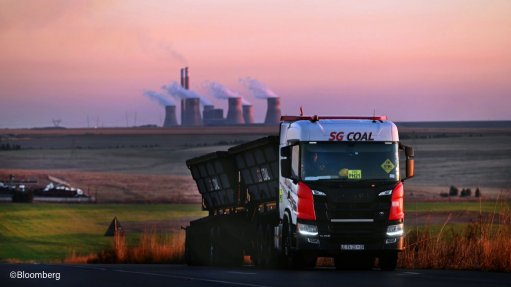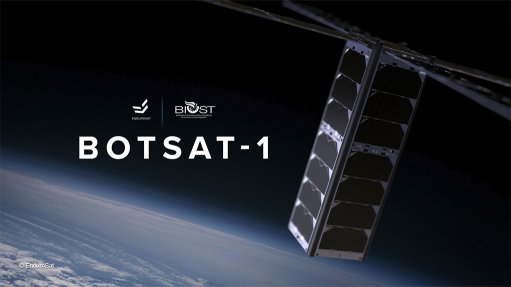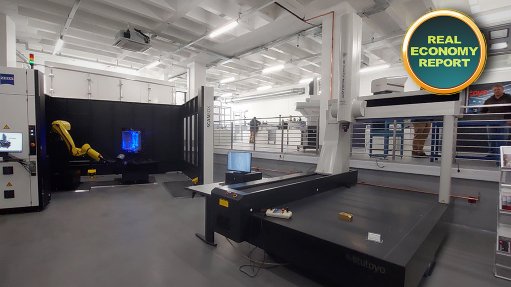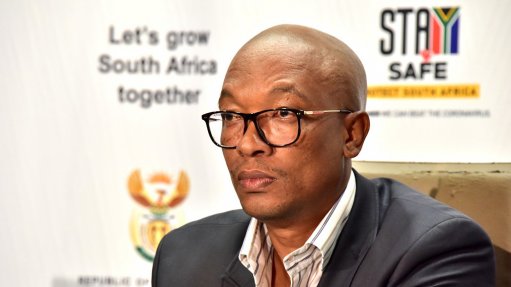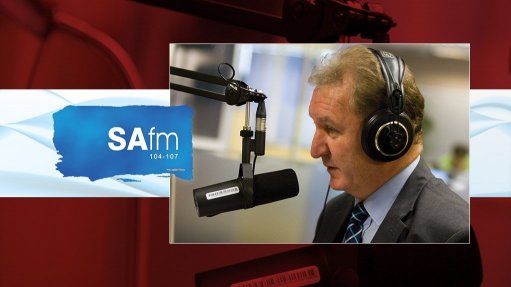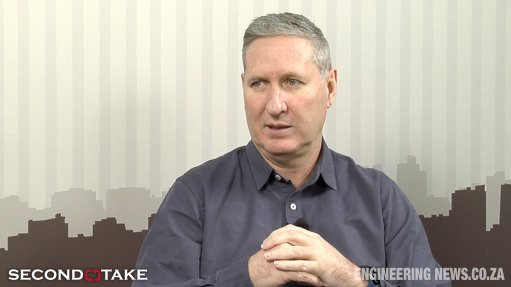SA plastics industry attends INC-4 discussions in Ottawa, Canada
This article has been supplied as a media statement and is not written by Creamer Media. It may be available only for a limited time on this website.
“The plastics industry remains committed to addressing plastic pollution through collaboration, innovation, and evidence-based solution”
The Intergovernmental Negotiating Committee (INC) recently concluded its fourth session in Ottawa, Canada as part of a global effort to develop a legally binding agreement on plastic pollution, including in the marine environment. INC-4 brought together over 4 500 delegates representing 170 member states and over 480 observer organisations (including business, academia and civil society), marking the largest INC gathering to date. This was the fourth meeting that took place, after previous INC meetings took place in Uruguay, France and Kenya. The fifth and final meeting is scheduled to take place in Busan, South Korea from 25 November – 1 December 2024.
Anton Hanekom, Executive Director of Plastics SA, represented the South African plastics industry in the discussions as an observer delegate, supported by the Chemical and Allied Industries' Association (CAIA). Their participation aligned with the call by the United Nations Environment Programme (UNEP) for the private sector to become actively involved in the discussions in order to meet the UN Sustainable Development Goal 17.
“These past INC-4 discussions were different from the previous meetings where the debates were very high level and delegates were generally not discussing actual text. In this past session, however, scientists, businesses, civil society, and governments engaged in detailed wordsmithing, robust discussions and often tense debates about which words and sections should be included in the proposed agreement. It was also encouraging to see the negotiators dealing with the more technical aspects,” Hanekom reported.
With just one meeting left to finalise the UN plastics treaty text by the end of 2024, governments saw themselves under increased pressure to advance critical work on the Revised Zero Draft of the future instrument, prepared by the INC Secretariat in December 2023.
Lively discussions on a number of topics included placing caps on virgin production, boosting recycled content, enhancing waste collection, phasing out certain substances and international trade. Efforts by opposing pressure groups to limit the production of plastic products were faced by strong opposition from petrochemical-producing countries, as well as from industry groups who were lobbying in Ottawa. Throughout the INC-4 process, representatives of the plastics industry aimed to provide a comprehensive understanding of the plastics value chain and its role in combatting plastic pollution by sharing critical information and data in line with the goal of ending plastic pollution globally.
“From the beginning, the parties collaborated well and managed to simplify the almost 70-page updated draft language, merge text choices, and eliminate repetitions when feasible. All options and stances, nevertheless, are still on the table, and stark differences have emerged, particularly when it comes to the topics of scope, trade restrictions, financial mechanisms, chemicals and polymers of concern, problematic and avoidable plastic products, and reduction and phase-out measures for primary plastic polymers,” Hanekom reports.
Plastics SA supported the view held by Global Partners for Plastics Circularity, who underscored demand-side solutions, such as boosting recycled content and enhancing waste collection. “One of the key focal points of the discussions was again the reduction of plastic pollution in the environment and marine environment. The discussions highlighted the importance of both global and local Extended Producer Responsibility (EPR) schemes - emphasising not only producer fees but also operational involvement.
Other topics that were high on the agenda included chemicals of concerns and alternative plastics. Proposals were made by five different countries to phase out the use of five substances used in packaging by 2030, whilst many states advocated for equal risk reduction standards across all types of plastics throughout their lifecycle.
The trans-boundary shipment and trade of plastic waste between countries was also discussed, including the possibility of expanding the Basel Convention regulations to include trade regulations related to virgin resins and new products. Some countries are now discussing the possibility of allowing the trans-boundary shipment of waste between countries.
“Many questions are still being raised with regards to the overlap with existing international instruments such as the Basel-; Rotterdam- and Stockholm Conventions, as well as to regional and national legislation that is already being enforced for plastics and substances used in all materials. Bringing this down into one international treaty that must be agreed upon within 7 days is very ambitions. The decision makers will need to reconsider exactly what it is that they want to include into this treaty. However, the plastics industry remains committed to addressing plastic pollution through collaboration, innovation, and evidence-based solution. We believe that a multi-stakeholder approach, grounded in science and data, is essential for achieving meaningful and sustainable progress in line with the UN Sustainable Development Goals," Hanekom concluded.
With the final summit just seven months away, the pro-plastics group advocated that policy makers should be focusing on less contentious topics such as plastic waste management and product design, if there was any hope of reaching a consensus on a treaty later this year. The week-long talks ended with countries agreeing to continue their work in ad hoc meetings before the final summit starts in less than 7 months.
As these discussions continue, Plastics SA reaffirms its dedication to contributing constructively to the global effort to combat plastic pollution, stop plastics leakage and achieve a more sustainable future.
“Modern life would be impossible without plastics. It is short-sighted and irresponsible to push for outright bans without taking into consideration each country's socio-economic needs and unique challenges. It was clear from the emotive talks and appeals to ban plastics, that many of these advocates are mis-informed about plastics, the ingredients that are used to produce them and the huge progress we as an industry have made over the last two decades to create products that are safe, sustainable, responsible and recyclable. All parties need to evaluate the proposals with prudence and carefully consider the full lifecycle of plastics and their alternatives, as well as the broader supply chain impacts. The same goes for proposals that were made for dedicated programmes of work that focus on sectors with significant waste generation, short lifespans, or close environmental contact,” Hanekom concludes.
Comments
Press Office
Announcements
What's On
Subscribe to improve your user experience...
Option 1 (equivalent of R125 a month):
Receive a weekly copy of Creamer Media's Engineering News & Mining Weekly magazine
(print copy for those in South Africa and e-magazine for those outside of South Africa)
Receive daily email newsletters
Access to full search results
Access archive of magazine back copies
Access to Projects in Progress
Access to ONE Research Report of your choice in PDF format
Option 2 (equivalent of R375 a month):
All benefits from Option 1
PLUS
Access to Creamer Media's Research Channel Africa for ALL Research Reports, in PDF format, on various industrial and mining sectors
including Electricity; Water; Energy Transition; Hydrogen; Roads, Rail and Ports; Coal; Gold; Platinum; Battery Metals; etc.
Already a subscriber?
Forgotten your password?
Receive weekly copy of Creamer Media's Engineering News & Mining Weekly magazine (print copy for those in South Africa and e-magazine for those outside of South Africa)
➕
Recieve daily email newsletters
➕
Access to full search results
➕
Access archive of magazine back copies
➕
Access to Projects in Progress
➕
Access to ONE Research Report of your choice in PDF format
RESEARCH CHANNEL AFRICA
R4500 (equivalent of R375 a month)
SUBSCRIBEAll benefits from Option 1
➕
Access to Creamer Media's Research Channel Africa for ALL Research Reports on various industrial and mining sectors, in PDF format, including on:
Electricity
➕
Water
➕
Energy Transition
➕
Hydrogen
➕
Roads, Rail and Ports
➕
Coal
➕
Gold
➕
Platinum
➕
Battery Metals
➕
etc.
Receive all benefits from Option 1 or Option 2 delivered to numerous people at your company
➕
Multiple User names and Passwords for simultaneous log-ins
➕
Intranet integration access to all in your organisation






